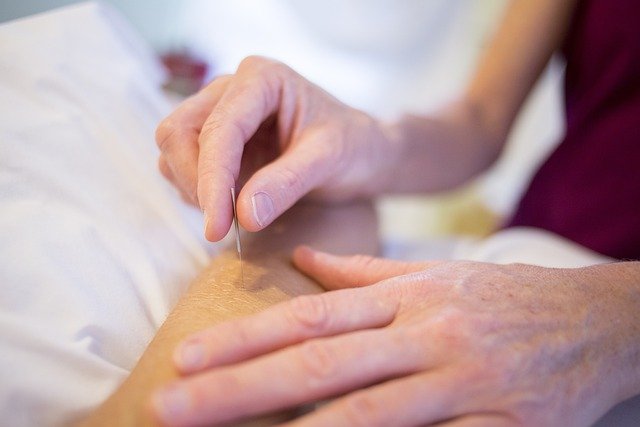Hair Growth Clinical Trials: What You Need to Know
Hair regrowth trials are testing breakthrough therapies aimed at reversing hair loss in both men and women. Participants may benefit from early access to innovative treatments targeting follicles and hormonal imbalances, while helping researchers refine new solutions.

What Is a Hair Regrowth Clinical Trial?
A hair regrowth clinical trial is a carefully controlled research study that tests new treatments, medications, or procedures designed to stimulate hair growth and combat hair loss. These trials follow strict protocols established by regulatory agencies to ensure participant safety while evaluating the effectiveness of experimental therapies. Researchers typically focus on treatments that address various causes of hair loss, including genetic factors, hormonal changes, autoimmune conditions, and environmental stressors.
Participants in these studies receive close medical supervision throughout the process, with regular monitoring to track progress and identify any potential side effects. The trials often compare new treatments against existing approved therapies or placebos to determine their relative effectiveness. This scientific approach helps researchers gather reliable data about which treatments show the most promise for different types of hair loss conditions.
How Do Clinical Trials for Hair Regrowth Work?
Clinical trials for hair regrowth typically progress through multiple phases, each designed to answer specific questions about the treatment’s safety and effectiveness. Phase I trials focus primarily on safety, involving small groups of participants to establish appropriate dosing and identify potential side effects. Phase II trials expand to larger groups and begin evaluating effectiveness while continuing to monitor safety.
Phase III trials involve hundreds or thousands of participants and compare the new treatment directly against current standard treatments. These comprehensive studies provide the data necessary for regulatory approval if the treatment proves successful. Throughout all phases, participants receive detailed informed consent information and can withdraw from the study at any time.
The duration of hair growth clinical trials varies depending on the treatment being tested, but most studies last between six months to two years. This extended timeframe allows researchers to observe the full cycle of hair growth and assess long-term effects of the experimental treatments.
Who Can Participate in Hair Growth Studies?
Eligibility for hair growth clinical trials depends on specific criteria established by researchers for each study. Common requirements include age ranges, types of hair loss, duration of hair loss, and overall health status. Most trials seek participants with androgenetic alopecia (male or female pattern baldness), alopecia areata, or other documented forms of hair loss.
Researchers typically exclude individuals with certain medical conditions, those taking specific medications that might interfere with the study, pregnant or nursing women, and people with unrealistic expectations about results. Some trials focus on specific demographics, such as postmenopausal women or men within certain age ranges, to better understand how treatments work for different populations.
Before joining any clinical trial, potential participants undergo comprehensive screening processes including medical history reviews, physical examinations, and sometimes laboratory tests. This thorough evaluation ensures that participants are suitable candidates and helps researchers maintain the integrity of their study data.
Current Clinical Trial Options and Providers
Several reputable research institutions and pharmaceutical companies currently conduct hair regrowth clinical trials across the United States. Major medical centers, dermatology clinics, and specialized research facilities offer various study opportunities for eligible participants.
| Provider Type | Research Focus | Key Features |
|---|---|---|
| University Medical Centers | Novel drug therapies and stem cell treatments | Comprehensive care, no cost participation, access to latest research |
| Pharmaceutical Companies | FDA approval studies for new medications | Rigorous protocols, potential early access to breakthrough treatments |
| Specialized Hair Research Clinics | Laser therapy, topical treatments, and combination approaches | Focused expertise, personalized monitoring, innovative techniques |
| Dermatology Research Centers | Autoimmune-related hair loss treatments | Specialized knowledge, multidisciplinary approach, long-term follow-up |
Most clinical trials provide study-related medical care, medications, and monitoring at no cost to participants. However, participants may need to cover transportation costs and time away from work for study visits. Some trials offer modest compensation for time and travel expenses, though this varies by study and location.
Benefits and Considerations for Participants
Participating in a hair growth clinical trial offers several potential advantages, including early access to promising new treatments that may not be available to the general public for years. Participants receive comprehensive medical monitoring and care from specialized research teams, often at no cost. Additionally, many participants find satisfaction in contributing to scientific research that may help future generations dealing with hair loss.
However, clinical trial participation also involves certain considerations and potential risks. Experimental treatments may not be effective for all participants, and some may experience side effects not yet fully understood. The time commitment for study visits and follow-up appointments can be substantial, and participants must be willing to follow strict protocol requirements throughout the study period.
Hair growth results in clinical trials can vary significantly among participants, and there’s always the possibility of being assigned to a placebo group in controlled studies. Participants should carefully consider these factors and discuss them thoroughly with research teams before enrolling in any clinical trial.
Clinical trials represent a crucial pathway for developing new hair loss treatments and offer hope for millions of people seeking effective solutions. By participating in these carefully conducted studies, individuals not only gain access to potentially groundbreaking therapies but also contribute to the advancement of medical knowledge that benefits the broader community affected by hair loss conditions.
This article is for informational purposes only and should not be considered medical advice. Please consult a qualified healthcare professional for personalized guidance and treatment.




